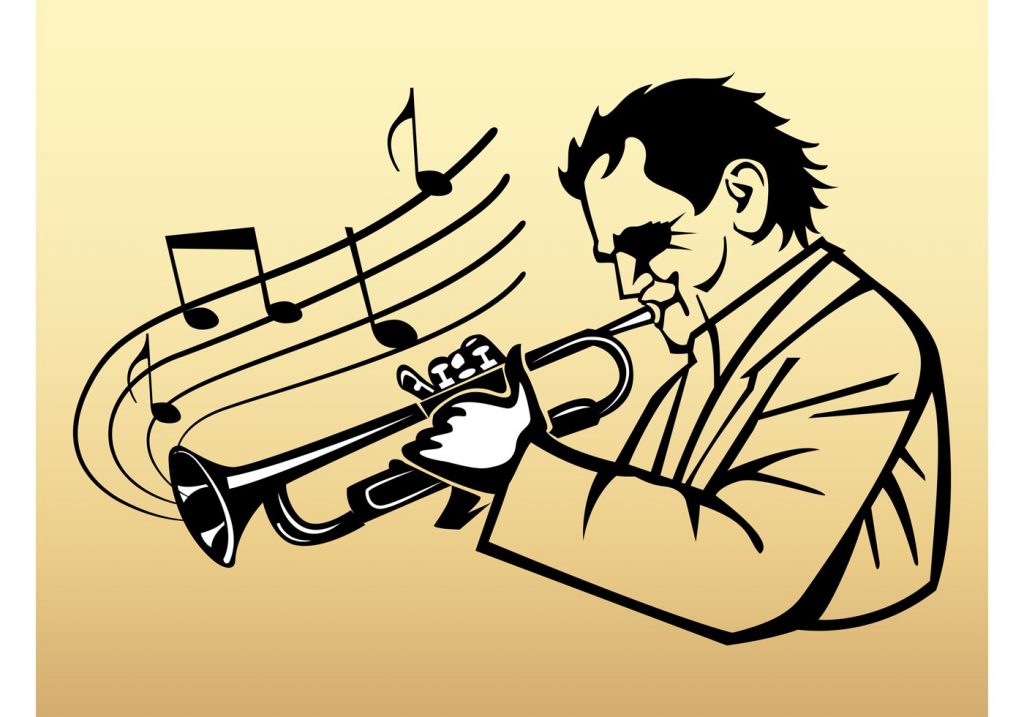One of the main problems I come across is getting students to “practice”, apart from the really dedicated ones of course. This is partly down to a lack of understanding of what practice is and what can be achieved by it.
The first thing that regular practice helps is stamina, and little and often is the key. 15 minutes of quality practice per day is much better than saving it all up and working for an hour and a half at the weekend. This is because the embouchure is formed of muscles and, like all muscles, needs regular exercise to keep in good shape. Any brass player will know how long it takes to get the lip stamina back after a couple of weeks holiday, although interestingly the first practice after such a break is often quite good, but it doesn’t often last more than one session and it takes several days of regular practice for stamina to return properly. So a short period every day builds up and tones this vital area for brass playing. Warming up is important for the same reason, it gets the embouchure and airways ready to play and long notes followed by some scales and lip slurring are all good ways to achieve this. Using scales as a warmup also means that they are regularly played and more likely to stick in the memory.
The main body of a practice session though should be to work on elements and techniques learned in lessons and try and apply them to the pieces being played. Lessons in themselves are only signposts and direction indicators from the teacher, at the end of the day it is the student who must do the hard slog of improving their playing. This is achieved through their regular practice sessions. A long slurred passage in a piece, for example, will be improved by working at some slurring exercises and pitches can be secured by slowly working them out, but these strategies are best used in private practice sessions on their own.

Another major benefit of regular practice is that it helps habit forming. It has been said that it takes something to be repeated 50 times before it becomes an automatic habit, but whether the figure is correct or not, regularly repeated practice is the route to establishing difficult passages, good tuning and all the other things that need to be right. Assuming that it is being practiced correctly of course, if it isn’t right in the first place it will mean consolidating something that is essentially wrong.
A good example of habit forming is one of intervals. Quite often an embouchure or air will be held responsible for being unable to play a particular interval. This is often not the case, particularly when the notes are in a comfortable register. What is really happening is that although the notes are ok in isolation, the player has to negotiate moving from one note to another. That is, they need to work out how to alter the embouchure and air to get from one note to another, and students are often astonished to find that after only a few minutes practicing a particular interval it will be much more secure. This is of course, something that is ideally done in regular practice sessions and can be something which is prioritised in shorter practice sessions, which brings us nicely onto the next strategy for practice.
It is often heard said by students that they only had 10 minutes a day to practice and spend time just running through pieces that they are currently working on. This may help with familiarity and will probably work to some extent when starting to learn a new piece. This will probably soon prove to be insufficient when dealing with more complicated intricacies of a piece. This is where smart practice comes in. If there is only a short period of time available, then try to work out what can be achieved in that time. In ten minutes for example a new scale can be learned, fingering or slide positions worked out or the correct pitches in a particular bar can be identified. So even in ten minutes a day, a lot can be achieved in a short time.
Private home practice then is vital for improvement for all players, regardless of ability. The same principles of maintaining lip stamina and habit forming apply and, if only a short time is available, then practice smart and give some thought to what can be achieved in the time available. More than anything else though, practice should become part of the brass players daily routine so that we can all raise our game a bit.



